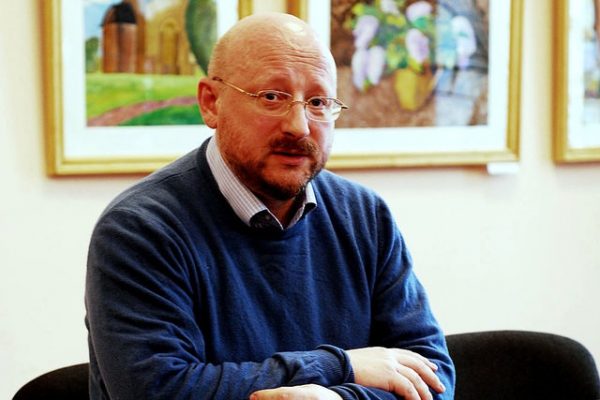“Aravot” interviews Modest Kolerov, a Russian expert and editor-in-chief of “Regnum” agency
– Mr. Kolerov, what phase of the Karabakh peace process have we reached? What outcome can be mentioned summing up the meetings of the presidents in St. Petersburg and Vienna? How important were they, particularly the St. Petersburg meeting? After this meeting, information was circulated that the parties reaffirm the commitments in Vienna but it was only mentioned about the increase in the number of observers in the conflict zone rather than about the introduction of the mechanisms.
– The outcome of the meetings in Vienna and St. Petersburg were the diplomatic defeat of Baku, now they have to agree to the increase in the number of observers and the actual raising of the status of Nagorno-Karabakh, which was proved by the meeting of OSCE Chairperson-in-Office, German Foreign Minister Frank-Walter Steinmeier with the NKR President. While the mechanisms for the investigation of border incidents and the prevention thereof are already on the agenda, irrespective of Baku’s opposing them.
– Russia’s position on Karabakh is one: hasty settlement of the protracted conflict, announced Russian Foreign Ministers’s Press Secretary Maria Zakharova prior to the CSTO Council session of the foreign ministers, commenting on the Karabakh settlement process. What can you explain Russia’s haste? Does Moscow really want to solve the protracted Nagorno-Karabakh conflict?
Read also
– Let us leave the “hasty” formula of the conflict settlement to Maria Zakharova’s conscience. More sober and accurate formula underlying Russia’s numerously expressed posture is the “nearest possible”. No one is going to hurry for the sake of presenting a report and making notes.
– The parliament ratified the agreement on forming a unified air defense system between Russia and Armenia. Armenian Deputy Defense Minister Ara Nazaryan assured that it is not related to Karabakh, and in the case of danger to Karabakh, we will use the Armenian air defense measures. But, we are also concerned that it is a document that leaves Karabakh alone from Armenia’s air defense legal territory while Armenia and Karabakh have one common security system, and the air defense system should also be one. While the mentioned agreement drives a wedge between Armenia’s and Karabakh’s air defense systems. How would you interpret this?
– Not the agreement but its interpretation as an agreement drives a wedge between Armenia and Nagorno-Karabakh, which allegedly leaves out NKR from Armenia’s air defense system. The April war showed the fact that the air defense system excluded the use of large aircraft by Azerbaijan. In addition, I repeat for the hundredth time, the main wedge between Armenia and the Nagorno-Karabakh Republic is the non-recognition of Nagorno-Karabakh by Armenia, which does not allow Armenia to legitimize its military relations with NKR.
– What can we expect from the settlement of the Russian-Turkish relations? Can we argue that the ice between Turkey and Russia, however, has begun to melt? What should Armenia expect from it?
– We need to wait for the next gross violation of the relationship by Turkey. I do not see any danger for Armenia in this superficial reconciliation. Armenia does not see anything criminal that Armenian tourists are visiting Turkey, and the Turkish textiles and household chemicals are widely sold in Yerevan, does it?
EMMA GABRIELYAN
“Aravot”
07.07.2016





















































